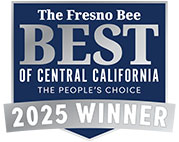- FSS-005
- Food Safety Mgmt/ App to Prod
- Credit(s) 3
Food Safety Management Wiht Application To Production Systems
FSS 005 is an introduction to food safety principles with an overview of career
opportunities, food safety technologies, environmental sources and transport mechanisms
of food-borne pathogens, and the role of site conditions. An overview Good Agricultural
Practices for farm production is included. Specific guidelines for key agricultural
commodities are presented as well as regulations and monitoring Standard Operating
Procedures (SOPs) and guidelines for food safety. Field trips may be required.
- Class Hours:
- 54 Lecture
- Transfers to:
- CSU
- FSS-010
- Food Chemistry
- Credit(s) 3
Food Chemistry
FSS 010 will provide an overview of the nutritional, chemical and physical properties
of the major food constituents (e.g., proteins, lipids, carbohydrates, water, minerals).
The importance of organic chemistry and biochemistry in food is explored. Laboratory
covers methods of food analysis.
- Class Hours:
- 36 Lecture | 54 Laboratory
- Transfers to:
- CSU
- FSS-015
- Microbiology of Foods
- Credit(s) 4
Microbiology of Foods
FSS 015 is a lecture and laboratory course designed to prepare students for work
in the food processing sector to include the use of material and equipment and corresponding
microbiological laboratory skills. The technological aspects of food and water operations
is taught with a focus on sanitary inspection procedures and quality control principles.
The isolation and identification of micro-organisms by cultural and biochemical techniques
are taught.
- Class Hours:
- 54 Lecture | 54 Laboratory
- Advisory(s):
- BIO 038 and CHEM 002A
- Transfers to:
- CSU
- FSS-020
- Agriculture Laws & Regulations
- Credit(s) 2
Agriculture Laws and Regulations
FSS 020 provides an introduction to the laws and regulations governing the agricultural
industry with a focus on food safety. Topics include an overview of government agencies
with responsibility to create and enforce laws and regulations to ensure a safe and
abundant food supply, public and worker safety, insurance, labor and agriculture organizations,
and environmental issues.
- Class Hours:
- 36 Lecture
- Transfers to:
- CSU
- FSS-025
- Principles of Hazard Analysis
- Credit(s) 3
Principles of Hazard Analysis and Critical Control
FSS 025 provides a review of Hazard Analysis and Critical Control Points (HACCP)
food safety management systems as a systematic and science-based approach to food
safety through the identification, monitoring and corrective control of critical hazards
in food production facilities. The review will include the corresponding verification
and validation processes necessary to prove that a food safety management system is
scientifically valid by gathering evidence to assure that safe food products will
be produced once the management system is implemented.
- Class Hours:
- 54 Lecture
- Transfers to:
- CSU
- FSS-030
- Audits, Prev Controls & Prod S
- Credit(s) 3
Audits, Preventive Controls and Produce Safety
FSS 030 will provide an introduction to food safety plans with applications to
preventive controls for human foods and the produce safety rule. The knowledge and
skills necessary to conduct an effective audit of food safety management systems will
be developed to evaluate regulatory compliance, detect deficiencies, and implement
corrective and preventative actions.
- Class Hours:
- 54 Lecture
- Transfers to:
- CSU
- FSS-035
- Principles of Food Science
- Credit(s) 3
Principles of Food Science
FSS 035 provides an introduction to the fundamentals of food science with an overview
of food safety, technology and industry standards. Students will gain an understanding
of the principles of food processing, preparation and storage. Food safety challenges
and regulations will be reviewed.
- Class Hours:
- 54 Lecture
- Transfers to:
- CSU
- FSS-040
- Facility Food Safety Managemen
- Credit(s) 3
Facility Food Safety Management
FSS 040 course topics include the development and management of food safety programs
with focus on evaluation, documentation, pathogen tracking and crisis management.
An introduction to Good Manufacturing Processes (GMPs) for facility management is
provided. Specific application is made to manufacturing and processing facilities
with emphasis on temperature control/cold chain, evaluation of alternative risk reduction
strategies, HACCP principles, employee training and the audit process.
- Class Hours:
- 54 Lecture
- Advisory(s):
- FSS 025
- Transfers to:
- CSU
